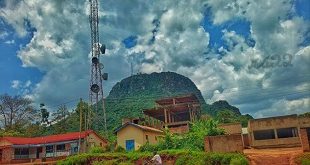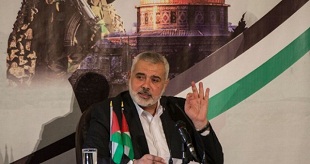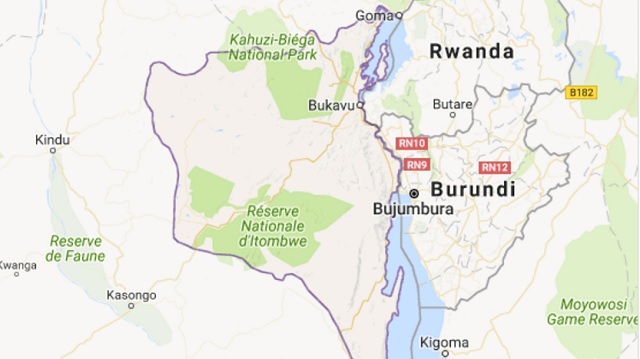
COMMENT | Prof. Freddy Kaniki | The eastern region of the Democratic Republic of Congo is prey to various and varied conflicts, particularly the M23 war with identity crisis implications in North Kivu; the catastrophic campaign to uproot the Tutsi Banyamulenge in South Kivu; and the strategic social and economic destruction targeting the Hema community in Ituri. Regardless of their nature and particular attributes, these conflicts share a commonality of violence and a destructive intent.
The media has concentrated on the single issue of the M23. This significantly diminishes the scope of the conflict, both in terms of its nature and its repercussions, and in addition, it assigns all responsibility to M23. For as long as the issue is viewed as a conflict between the M23 and the DRC government, it will bear several names far from reality. The sad reality is that with or without M23, there is a widespread systematic discrimination and violence against Tutsi across the country. There are currently more than 750 young Tutsi detained in various prisons with all the same offense: Their ethnicity, being Tutsi. The Congolese government should own that responsibility. One of the biggest emergencies happens to be the situation of Banyamulenge in South Kivu province.
Current Situation in Minembwe
After a period of tranquility in this region, which has been afflicted by armed conflict from various factions since 2017, new assaults and excessive militarization are indicative of an impending escalation of violence with disastrous consequences.
From 25 – 27 December 2024, a coalition of the DRC’s regular armed forces (FARDC), the government-led militia known as Mai Mai and their foreign allies attacked several villages in Minembwe, in the, South Kivu Province of eastern DRC. The attacks targeting the Banyamulenge, a Tutsi community established in South Kivu for several generations, made a dozen of victims, including a teenage girl aged 13.
Evidence from the ground in Minembwe confirms that the FARDC and their allies are preparing large scale attacks, which will undoubtedly worsen an already very fragile situation. Credible sources in the area indicate that on 27 December 2024, a cargo plane transporting military material landed twice in Fizi where Col. Makelele, a bigade commander in Fizi, oversees the acquisition and the distribution of the received material to soldiers and militias. Sources further confirm that six military battalions have been deployed in Minembwe and joined forces with several Mai Mai militia groups (Wazalendo) from neighboring Bafuliru, Babembe, and Banyindu communities, and foreign armed groups operating in eastern DRC for many years. The security situation in this hauts plateaux affected by violent militancy for decades has recently been complicated by effort to implant FDLR fighters in the area. The recently documented presence of FDLR fighters in such places as Kitoga and Kajembwe can only further complicate an already volatile situation of ethnic tensions. The prolonged insecurity in the hauts plateaux of South Kivu that worsened from 2017 has reduced Minembwe into a concentration camp, turning its population into a permanent target of violence. Over-militarization of Minembwe will simply make the conditions unbearable for the targeted community and contribute to its uprooting from the area.
Long History of Violence end Impunity
This umpteenth attack is part of a coordinated plan implemented since April 2017 to cleanse the area of any Banyamulenge presence. Minembwe abandoned and is under siege. Over the past 7 years, 2000 banyamulenge have lost their lives, 480 villages have been completely destroyed and burned to the ground, more that 500,000 cattles looted and tens of thousands people dispersed in refugee camps in neighboring countries . This is the reason of existence of Twirwaneho, a spontaneously born self-defense movement. The Twirwaneho action was born from the inability of the Congolese state and its security organs to fairly protect all citizens. It was born in a context where elements representing the authority of the State have often distinguished themselves through their biased conduct and interventions, including their collusion with negative forces in the attacks against civilian populations members of the Banyamulenge community. Although the Banyamulenge population felt abandoned by their government, they did not consider the congolese army as their enemy but rather begged them to protect everyone without discrimination. For Twirwaneho, the existential war imposed to them has no reason to exist, but it does not leave them two options. Self-defense is the sole viable alternative as long as certain individuals consider others as inferior citizens, deny their fundamental rights, attack and kill them or damage their properties with the complicity of law enforcement.
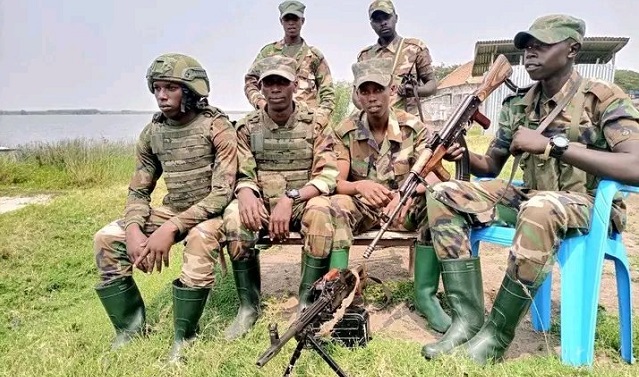
It bears reminding that the current attacks against the Banyamulenge as a group may be increasing in intensity but are not a new phenomenon. In October 1996, the Zairian authorities announced that the Banyamulenge were foreigners and, handed them a six-day ultimatum to leave the country. Two years later, in 1998, former foreign affairs minister Abdulaye Yerodia Ndombasi called for the extermination of the “scum and vermin (Referring to the banyamulenge) that must be methodically eradicated and with determination”. Following those calls, thousands of Banyamulenge and other Congolese Tutsi were massacred across the whole country while thousands were forcibly expelled from Vyura in the Katanga Province. In August 2004, 166 Banyamulenge were selectively massacred in Gatumba refugee camp in Burundi by a coalition of Burundian and Congolese armed groups in an ethnically motivated attack that, again, mirrors those currently taking place in Minembwe. Promises of accountability made by diverse regional and international actors after this attack have not been followed up by concrete actions. Impunity rather encouraged further targeted attacked against the Tutsi in eastern DRC. The ongoing killings of the Banyamulenge of South Kivu and the Tutsi of North Kivu are partly a consequence of past impunity.
Hate Speech against Tutsi
The cruelty of the attacks targeting the Tutsi is, in part, a result of hate speech, including incitement to commit genocide against this community, propagated by a diverse range actors including militia groups, their supporters from neighboring communities and elsewhere in the country and Congolese diasporas, including public figures in the DRC. Hate speech against the Tutsi In DRC today reproduces many themes carried by Rwanda’s hate media more than 30 years ago. As a result, killing a Tutsi in the Congo has become an act of bravery, and explains why Tutsi are lynched, killed, burned and their flesh eaten with pride in front of the camera and without prosecution.
The phenomenon has been documented and denounced by diverse actors, including UN officials in the DRC since at least October and November 2019. Examples of denunciation include Abdoul Aziz Thioye, then Director of the United Nations Joint Human Rights Office in the DRC who declared: “there is indeed a resurgence and proliferation of discourses that we can qualify as incitement to hatred, violence and discrimination through the media classics and social networks. These hateful speeches and calls for violence against the Congolese of Tutsi ethnicity and Kinyarwanda speakers, in particular the Banyamulenge community, have increased since mid-2021.
Additionally, in her report of November 30, 2022, Alice Nderitu, then Special Advisor to the Secretary General of the United Nations on the prevention of genocide, said: “The ongoing violence in the Democratic Republic of the Congo is a warning of the societal fragility and a testament to the enduring presence of the conditions that have enabled animosity and violence on a large scale to escalate into genocide in the past”. Recently, the former president of South Africa, Mr. Thabo Mbeki noted the need to place the problem of discrimination and exclusion of Banyamulenge and Tutsi in general at the center of the resolution of the security crises in the east of the DRC.

Contested Congolese Citizenship
The Banyamulenge, just like many other Congolese communities, were established on the territory of what was to become Belgian Congo in the 18th century long before the demarcation of African colonial boundaries. Under the Congolese Constitution and applicable laws, the Congolese citizenship of Banyamulenge is unquestionable, as reiterated by President Tshisekedi in a speech to the Congolese diaspora in London on 19 January 2020 at a time when his administration was not belligerently targeting them. Yet, patterns of discrimination and targeted killings over the years by neighboring communities often with the backing of, or in open collaboration with, civilian and military authorities at local and national levels have been motivated by policies seeking to treat them as foreigners or second-class citizens, against whom acts of violence are legitimized.
Indifference or Complicity
Despite several calls for support, the current escalation of violence and belligerence in and around Minembwe shows that the lack of action in response to previous Banyamulenge calls for help and de-escalation has emboldened actors who have vowed to cleanse eastern DRC of any Tutsi presence. The inaction is often justified by a misguided reading of what is happening on the ground. Similarly to the Rwandan context some 30 years ago, a dominant reading of what is happening in the hauts plateaux of South Kivu and elsewhere in eastern DRC often captures and characterises the events as inter-ethnic conflicts. Instead of taking action to prevent a well-orchestrated ethnic cleansing agenda targeting the Tutsi/Banyamulenge civilians, several reports on the conflicts, informed by disinformation campaigns, often blame the victims. Even UN investigations on the ground have occasionally displayed partial or misguided analysis of the realities. In many cases actors involved have failed to properly engage the victimized communities and instead relied on partial accounts from sympathizers of the aggressors. In a characteristic tendency to portray the events under ethnic lenses and “balance” the blame, reports have failed to give due attention to the plight of a small community assailed from all sides, both at the local and national levels.
Call for Immediate Action
In raising awareness over the unfolding tragedy, we also intended to request the United Nations, other global, regional and sub-regional bodies as well as governments, to seize the urgency of the situation and use their political leverage to de-escalate the tense and tragic situation in and around Minembwe. Concrete political and other actions should be taken to promote a return to stability and peaceful cohabitation between communities. The international community must urgently act to prevent further atrocities. The DRC’s government must be held accountable for its role in fostering or allowing violence against the Banyamulenge, and international actors must provide the political and military leverage to de-escalate the situation. The pattern of impunity, fueled by disinformation and partial analyses, must be broken to stop the ethnic cleansing campaign targeting the Banyamulenge.
The current violence in South Kivu, coupled with the historical context of attacks against the Tutsi community, presents a real threat of regional destabilization. The international community must not remain passive in the face of this unfolding tragedy. Concrete, decisive action is needed to protect the Banyamulenge and other vulnerable communities, to ensure accountability for perpetrators, and to foster a return to stability in eastern DRC.
The crisis in Minembwe and the broader region is a stark reminder of the fragility of peace in the DRC and the urgency of addressing deep-rooted ethnic tensions before they spiral into even greater violence. The world must act now to prevent another tragedy of historic proportions.
*****
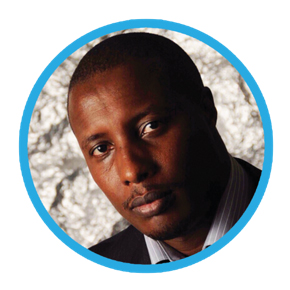 Prof Kaniki was born and raised in the Democratic Republic of the Congo. He is a member of the Banyamulenge Tribe in South Kivu and advocate for the marginalized communities and for peace in Eastern DRC. He is a graduate of the university of Colorado in Denver, USA; a US State Department Fulbright Specialist and Director of a Post-Doctoral Pharmacy Residency program through ASHP in Kotzebue, AK USA.
Prof Kaniki was born and raised in the Democratic Republic of the Congo. He is a member of the Banyamulenge Tribe in South Kivu and advocate for the marginalized communities and for peace in Eastern DRC. He is a graduate of the university of Colorado in Denver, USA; a US State Department Fulbright Specialist and Director of a Post-Doctoral Pharmacy Residency program through ASHP in Kotzebue, AK USA.
 The Independent Uganda: You get the Truth we Pay the Price
The Independent Uganda: You get the Truth we Pay the Price

